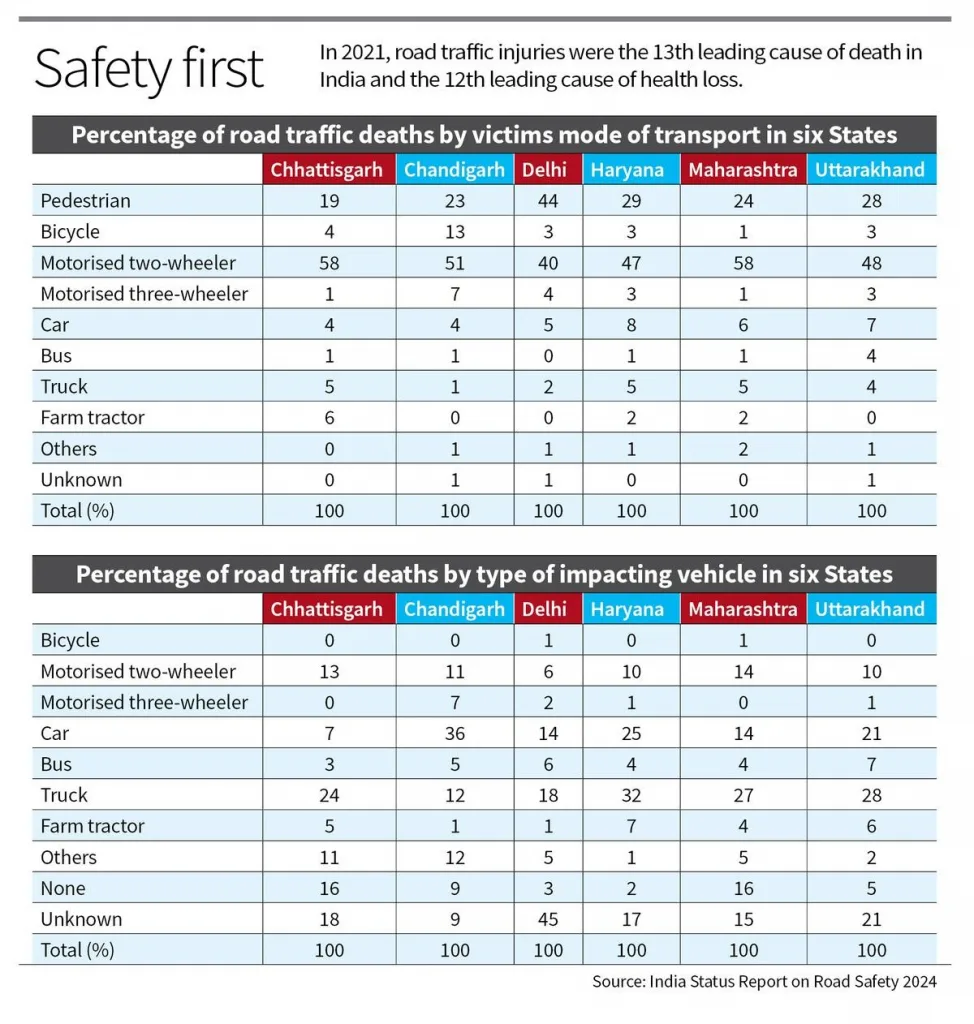Syllabus :GS 2/Governance /GS 3/Economy
In News
- Recently, The “India Status Report on Road Safety 2024,” prepared by the TRIP Centre at IIT Delhi,
About the report
- It highlights India’s slow progress in reducing road accident fatalities and emphasizes the link between road construction, mobility, and the need for targeted accident mitigation strategies.
- It analyzed road safety in India, using data from First Information Reports (FIRs) from six States and audits of State compliance with Supreme Court directives on road safety governance.
Key Findings
- State wise :It revealed disparities in road traffic death rates across States.
- High death rates in Tamil Nadu, Telangana, and Chhattisgarh; lower rates in West Bengal and Bihar.
- Uttar Pradesh, Maharashtra, Madhya Pradesh, Karnataka, Rajasthan, and Tamil Nadu account for nearly half of all traffic fatalities.

- Vulnerable group: pedestrians, cyclists, and motorised two-wheeler riders are the most common victims of road accidents, while trucks are responsible for the highest proportion of impacting vehicles.
- Global Comparison: India’s road safety performance is significantly worse compared to developed countries like Sweden.
- The likelihood of dying in a road accident in India has increased sharply compared to these countries over the past decades.
Issues and concerns
- Current national road safety data systems are inadequate.
- Only eight States have audited more than half of their National Highway lengths, and very few States have done the same for their State Highways.
- Basic traffic safety measures, including traffic calming, markings, and signage, are still lacking in most States
- Lack of a national crash-level database and reliance on aggregated police records limit effective analysis and intervention.
- Helmet usage is low, especially in rural areas, and trauma care facilities are inadequate.
- Road traffic injuries are a major public health issue with minimal progress in reducing fatalities.
- Most Indian States are unlikely to meet the United Nations Decade of Action for Road Safety goal to halve traffic deaths by 2030.
Recommendations:
- Road safety education is as vital as other basic survival skills.
- Central and State governments need to prioritise the scale-up of road safety interventions.
- A national database for fatal crashes should be established.
- Public access to this system will improve understanding of specific risks to road users and the effectiveness of various interventions implemented in the States.
- Tailored strategies are essential to address the unique road safety challenges faced by different States
Source:TH
Previous article
News In Short-09-09-2024
Next article
India and UAE MoU for Nuclear Cooperation